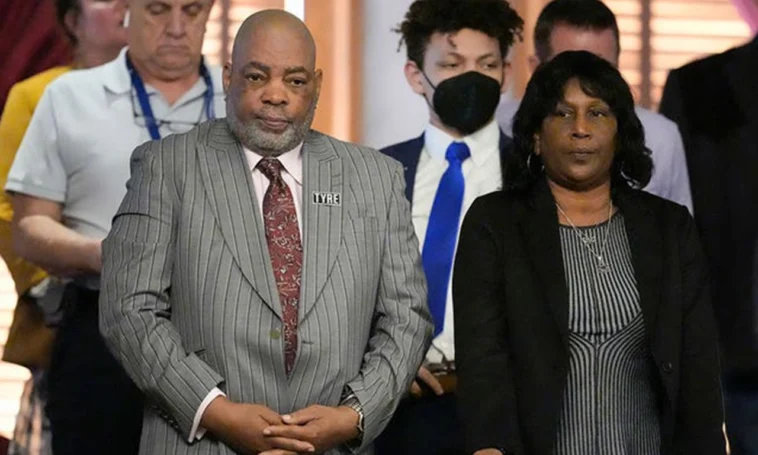Tennessee Governor Lee approves legislation to revert Memphis traffic stop reforms post Tyre Nichols’ death. The move raises concerns about racial profiling and police accountability, reigniting debates over law enforcement practices.
The recent repeal of police traffic stop reforms in Memphis, Tennessee, despite pleas from Tyre Nichols’ parents and ongoing federal investigations into policing and race in the city, underscores the complex dynamics surrounding law enforcement, accountability, and legislative decision-making. This contentious issue has far-reaching implications for community-police relations, racial justice, and the balance of power between local and state governments.
The month afterward, Lee mentioned the Nichols family in his annual State of the State speech, saying “their courage, along with the compassion shown by the people of Memphis, is a picture of hope.”
Tyre Nichols’ tragic death in January 2023 sparked outrage and renewed calls for police reforms both locally and nationally. Videos depicting the brutal beating of the 29-year-old Black man by officers prompted widespread condemnation and demands for accountability.
In response, Memphis city council passed ordinances aimed at curbing abusive police practices, including the prohibition of pretextual traffic stops, such as those initiated for minor violations like broken taillights. These reforms were seen as crucial steps toward addressing systemic issues of police brutality and racial profiling.
However, the recent repeal of these reforms by Tennessee Governor Bill Lee highlights a stark divergence in priorities and perspectives between state and local authorities. Governor Lee, a Republican, justified his decision by arguing that Nichols’ death should lead to accountability for individual officers rather than imposing new restrictions on police conduct. This stance reflects a broader trend among Republican lawmakers who prioritize law enforcement interests and resist efforts to limit police authority.
Governor Lee’s track record further underscores his reluctance to challenge his party’s agenda, having never vetoed a piece of legislation during his nearly seven years in office. His unwavering support for Republican initiatives, including the controversial push for a universal school voucher bill, demonstrates his commitment to advancing conservative policies even in the face of public outcry or opposition.
The repeal of Memphis’ police reforms also highlights broader racial and political dynamics at play within Tennessee’s legislative landscape. Despite initial expressions of solidarity and support from some Republican officials in the aftermath of Nichols’ death, the majority-white Legislature ultimately sided with advocates who opposed new limits on police authority. This decision reflects a pattern of resistance to progressive reforms and oversight measures, particularly in cities like Memphis and Nashville, which tend to lean Democratic.
Moreover, the failure of lawmakers to engage with Nichols’ parents and community advocates in meaningful dialogue further exacerbates feelings of marginalization and distrust. The dismissive response to their pleas for compromise and accountability undermines the principles of democratic governance and civic engagement. The lack of transparency and communication surrounding the legislative process only deepens existing divides and reinforces perceptions of systemic injustice.
The federal investigations into Nichols’ death and broader policing practices underscore the urgent need for comprehensive reform and oversight measures. The decision to roll back these reforms while federal authorities are still investigating allegations of racially discriminatory policing sends a troubling message about the state’s commitment to upholding civil rights and ensuring equal protection under the law.






Join the Community and Be a Part of the Conversation
You must be logged in or registered to post a comment.